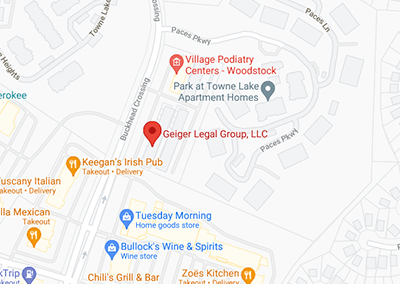The Dangers of Overloaded Semi Trucks

Georgia depends on semi-trucks to help bring goods into and out of our state. Many commercial 18-wheeler trucks carry loads of appropriate weight to maneuver safely on highways and roads. But when semi-trucks transport weight beyond the approved limits, the results are dangerous for the driver and everyone who shares the road with them. If you’ve recently been affected by a semi-truck accident, an overloaded semi-truck could be to blame. Let’s dive into the dangers of overloaded semi trucks.
Threat of Overloaded Semi-Trucks
According to the Federal Highway Administration (FHWA), 80,000 pounds is the 18-wheeler weight limit, including the weight of the cab and trailer. Semi-trucks that carry weight beyond this legal limit are at greater risk for accidents, including:
- Tire blowouts: Excessive weight causes tires to blow, often resulting in the driver losing control and colliding with other vehicles.
- Brake failure: Overloading an 18-wheeler strains the braking system, increasing the risk of brake failures.
- Rollover accidents: Overloaded trucks have a higher center of gravity, making them more prone to roll over, especially during turns, sudden maneuvers, or when navigating slopes.
- Jackknife accidents: The imbalance caused by overloading can lead to jackknifing, where the trailer swings out to form a 90-degree angle with the truck’s cab (resembling an open jackknife).
- Cargo-related crashes: Overloading can result in cargo spills or imbalanced loads. Cargo spills can create hazards for other vehicles, and imbalanced loads can lead to instability and rollovers.
- Rear-end collisions: Overloading a semi-truck makes it heavier so that longer stopping distances are required, which increases the risk of crashing into vehicles in front of them.
- Sideswipe accidents: Large trucks already have blind spots, and overloaded cargo can impede the driver’s visibility, especially when turning or changing lanes.
- Bridge and structure collapse: Overloaded trucks can cause damage to bridges and other road structures, potentially leading to failures and accidents.
Is It Illegal to Overload a Semi-Truck?
Overloading a semi-truck violates federal and state laws. These weight restrictions exist to protect truck drivers and other motorists. While a combined weight of 80,000 pounds applies to semi-trucks, federal and state rules exist on other commercial vehicles. For example, Georgia limits a single-axle truck’s total weight, including cargo, to 20,340 pounds. The Georgia Department of Public Safety imposes fines and citations on trucks that exceed their weight limit.
Who Is Liable for an Overloaded Semi-Truck Accident?
Determining liability in overloaded semi-truck accidents can be complex, requiring extensive investigations and legal knowledge to determine who might be at fault. Potentially liable parties include:
- Truck driver
- Trucking company
- Shipping company
- Freight forwarder or broker
- Maintenance provider
What To Do After a Semi-Truck Accident
Semi-truck accidents often lead to more severe injuries. Prioritize your health and safety by seeking immediate medical attention. Other steps to take after a semi-truck accident include:
- Get a copy of the police report for insurance claims or legal action.
- Follow up with your medical provider and keep copies of hospital bills, medical test results, and other related documentation.
- Do not post about the accident on social media.
- Contact our Georgia personal injury law firm for a free consultation.
Contact our Georgia Truck Accident Attorneys Today
Overloaded semi-truck accidents are life-altering events. Our knowledgeable and experienced Georgia semi-truck accident lawyers can protect your rights and help you recover compensation for your injuries and losses. The Geiger Legal Group, LLC, is a family-run law firm committed to excellent service. Discover our 5-star rated personal injury law firm with convenient locations to serve you. Contact Geiger Legal Group, LLC for a free consultation today.














